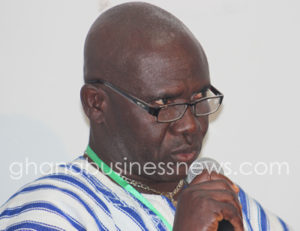Child trafficking: Why fishermen prefer child workers
 A fisherman, who at some point engaged in using children to fish for him, told a symposium in Accra today July 28, 2016, that they (fishermen) use children because they were easier to control.
A fisherman, who at some point engaged in using children to fish for him, told a symposium in Accra today July 28, 2016, that they (fishermen) use children because they were easier to control.
“Adults are a threat to us. And sometimes when you wake them up early to go fishing, they could refuse, but children don’t,” Luis Acolatsi who says he no longer uses children in fishing, said.
Adding, “Some adult males can even snatch your wife,” he said with a strain in his voice.
Telling the meeting how they train the children to fish, he said, “We teach them how to collect water from a canoe, how to swim and then they start to cast nets,” Acolatsi said.
Child labour is common in fishing communities along Ghana’s coasts, particularly, along Cape Coast and the Lake Volta.
The main industries found to be saturated with forced labour in Ghana are farming and fishing, retail sales, manual labour and factory work, according to the 2016 Global Slavery Index by the Walk Free Foundation. It also said an estimated 21,000 children work in fishing along the Volta Lake and its environs.
Information available elsewhere indicates that more than 190,000 people are currently victims of human trafficking in Ghana, and along the Volta Lake alone, more than 49,000 children are engaged in work.
The symposium was themed; “Growing up free – Ending child trafficking in Ghana.”
By Emmanuel K. Dogbevi
Copyright © 2016 by Creative Imaginations Publicity
All rights reserved. This news item or any portion thereof may not be reproduced or used in any manner whatsoever without the express written permission of the publisher except for the use of brief quotations in reviews.
